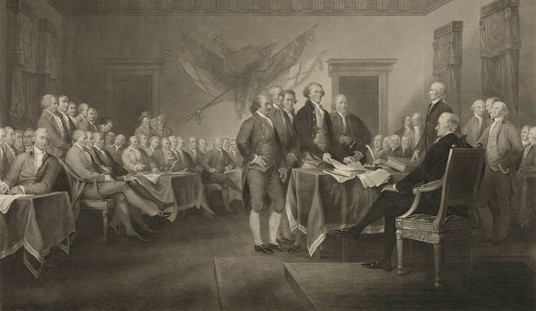The older I get, the less I find evil interesting and the more I find goodness interesting. Contrary to conventional wisdom, it is great goodness, not great evil, that needs to be explained. In fact, given the ubiquity of gratuitous cruelty and other expressions of evil -- and the apparent ease with which many ordinary people can be transformed into monsters -- evil may be more explicable than goodness.

Given all this, one would therefore assume that there would be many studies of goodness and of good people. Yet, there are probably 100 books, studies, and articles about evil for every book, study, or article about goodness. This emanates in large measure from the modern, i.e., post-religious, belief (“faith” would be a better word) that people are born good. Consequently, it is evil that is deemed aberrant and therefore needs to be explained, not good, which is deemed normal and therefore needs little explanation.
Just as studies of goodness are deemed less interesting than studies of evil, portrayals of goodness are deemed less interesting than portrayals of evil. Again, the ratio is probably at least a 100-to-1.
Yet, true stories of goodness, well told, are the greatest stories. While stories of evil have the benefit of sensationalism and appeal to voyeurism, stories of goodness uplift, inspire, make us cry, give us hope, provide real models to emulate, and ultimately may even make us a little better.
One problem, however, is that it is much easier to depict evil in a riveting manner than to so depict goodness. Stephen Spielberg achieved the latter in Schindler’s List, but that was the exception that proves the rule. Now, however, another exception has come along. Playwright Dan Gordon and director Michael Parva have made goodness riveting in the new Broadway play, “Irena’s Vow.”
Recommended
The Irena of the title is Irene Gut Opdyke, who, at the time of the play’s World War II’s setting, was a pretty 19-year-old blond Polish Roman Catholic to whom fate (she would say God) gave the opportunity to save 12 Jews in, of all places, the home of the highest-ranking German officer in a Polish city. Ultimately discovered by the Nazi officer, she was offered the choice of becoming the elderly Nazi’s mistress or the Jews all being sent to death camps.
As it happens, I interviewed Opdyke on my radio show 20 years ago and again 12 years later, and she revealed to me how conflicted she was about what she consented to do not only because she became what fellow Poles derided as a “Nazi whore” but because as a deeply religious Catholic she was sure she was committing a grave sin by regularly sleeping with a man to whom she was not married and worse, indeed a married man, which likely rendered her sin of adultery a mortal sin.
What she did therefore, was not only heroic because she had to overcome daily fear of being caught and put to death, but because she also had to overcome a daily fear of committing a mortal sin before God.
Aside from my lifelong interest in altruism and especially in understanding the motivations of rescuers of Jews during the Holocaust, I had an unwitting role in the making of “Irena’s Vow.” According to the playwright, Gordon, the play came about because he heard Opdyke on my radio show 20 years ago. He immediately contacted her, they became friends, and the rest is history.
We never know all the good (or bad) we have done. So Gordon’s attribution of the genesis of his play to me is very gratifying. If there was a dry eye on opening night this past Sunday when I attended, it surely wasn’t near my seat.
It is rare to see a play on Broadway that is preoccupied with goodness. It is even more rare to see Broadway play extol the goodness of a religious person. When was the last Broadway show about a Christian hero? In this upside-down age that is hypersensitive to any criticism, no matter how fair, of any aspect of Islam but which regularly depicts many American Christians as buffoons and quasi-fascists, one can only hope that this play has a long run. Likewise, in an age when art increasingly celebrates the ugly and the bad, one can only hope that a million young people see a play that celebrates the goodness that God-based morality can produce.

























Join the conversation as a VIP Member